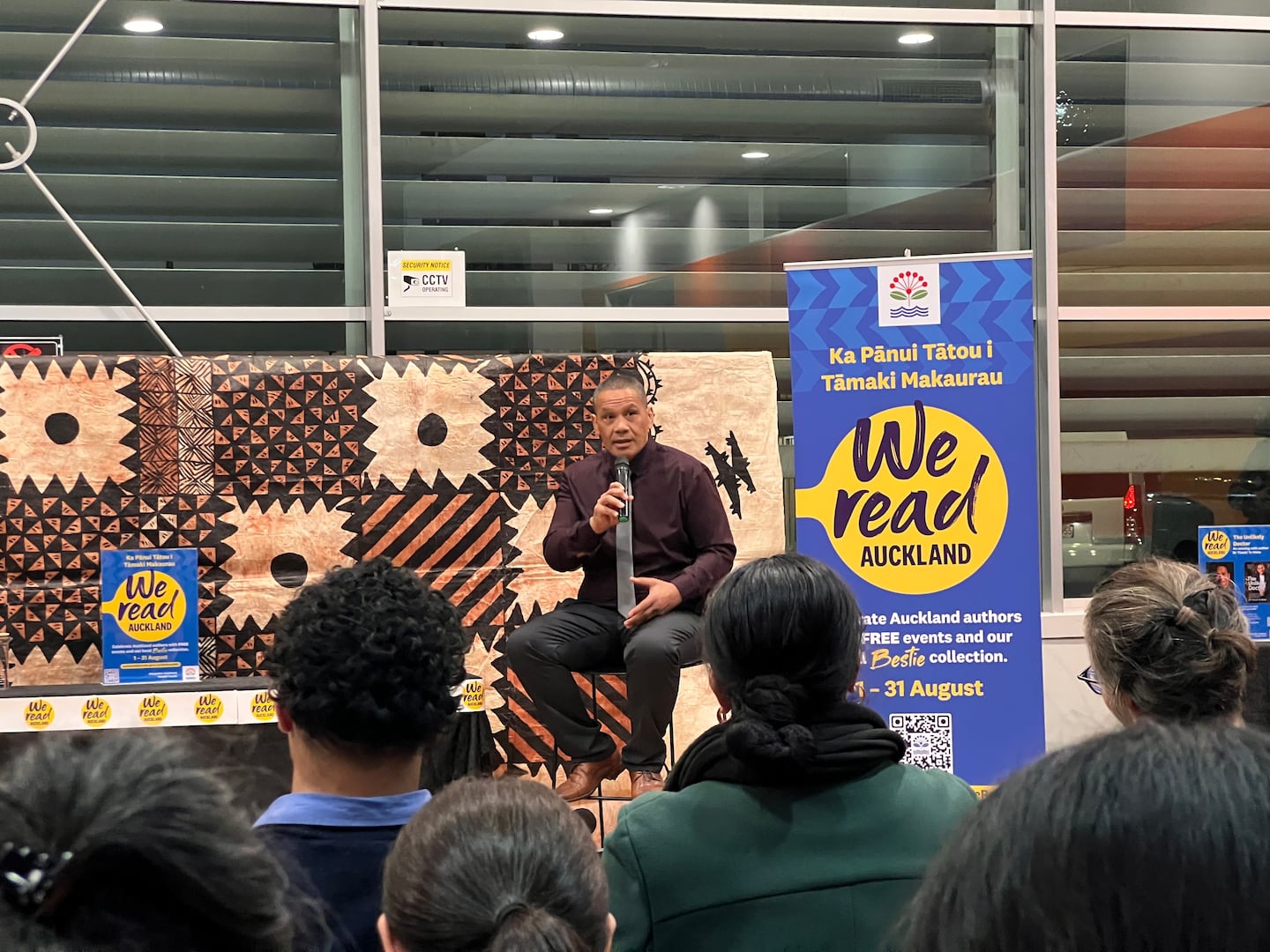South Auckland is losing doctors, lawyers and leaders because barriers keep blocking young people from reaching their potential.
That was the challenge issued by Dr Timoti Te Moke, who told locals the focus should not be on congratulating him for becoming a doctor but on the wasted potential of others.
“I grew up here in Māngere with 19 other guys. I’m the only one that’s not in prison or dead,” he says.
“A lot of them were smarter than me, better leaders than me. People call me an outlier, but what we should be lamenting is the loss of 19 other doctors, 19 other lawyers, 19 other scientists, 19 other engineers,” he says.
Te Moke delivered his message at a sold-out event at Auckland Council’s Māngere East Library on 21 August, as part of the We Read series.
From survival to structural failure
The 56-year-old Middlemore Hospital doctor, who grew up in Māngere and once served time in prison, says his memoir The Unlikely Doctor was not a triumph story but evidence of structural failure.
“I could have been a doctor 30 years ago if I didn’t have to deal with those barriers.
“What you’re really saying with ‘personal responsibility’ is that I’m poor because I deserve to be poor, uneducated because I deserve not to be educated. That’s not true. It’s the barriers that stopped me, and they’re stopping thousands more.”

Earlier this month, Te Moke told Local Democracy Reporting that he deliberately walks home in his scrubs to “normalise brown excellence” in South Auckland. At the event, he repeated that message to the audience.
“A boy at Hunter’s Corner saw me in scrubs and lit up. If I had been wearing a gang patch, he would have done the same. We need our kids to see doctors more than gang patches.”
Proceeds from his book are being channelled into a charitable trust that reinvests in communities facing the same barriers he experienced.
Questions from the community
The event turned into an open forum after Te Moke’s talk, with the audience pressing him on resilience, representation and responsibility.
On why he kept going: “There has never been one crossroads moment. It has always been incremental. I developed survival tools, but I learned to reshape those tools for the barriers in front of me.
“Once I cut through one barrier, it gave me the strength for the next, and new insight into my potential.”
On hope without mentors: “Yes, my life would have been different with a loving father. If I had a stable, loving family it would have made a lot of difference.
“But that’s why I wrote this book, to get it into every prison and rehab, so vulnerable people can see their potential. It tells their story, but also shows them why they are not realising their potential and how they can.”
A civic role for libraries
Togiatolu Walter Togiamua, deputy chair of the Māngere-Ōtāhuhu Local Board, says the event showed how libraries remain at the heart of community life.

“It brings in young people after school and is also a gathering place for seniors with weaving and other groups,” he says.
“The beauty of this one is he has been through his journey and is willing to share it, to inspire and change mindsets about how our community views gangs. To turn that around and become a focal point in our health system is huge.”
South Auckland reacts
People leaned forward, nodded in agreement and applauded as Te Moke reframed success not as personal triumph but as collective loss.
Rachel, last name not given, who attended after seeing him on television, says,“Having someone there to prove that we can, that is a big deal. It gives both Māori and Pacific Islanders a sense of pride that you can achieve what he achieved if you just put your mind to it.”




